“Certainly.” Takeda turned to a yeoman. “Take Dr. Willett’s assistants to their quarters. Doctor, let’s adjourn to my cabin.”
* * *
As soon as the door of Takeda’s cabin slid shut behind them and they sat down, Willett spoke in the same mild tone. “Captain, correct me if I’m wrong, but I can’t avoid the impression that you’re not altogether happy with your orders.”
Takeda didn’t bother with patently insincere denials. “It’s nothing personal, Doctor. But this ship is here as part of the Navy’s general buildup in the Tau Ceti system since the recent events that have brought to light the existence—and hostile intentions—of the Gharnakh’sha. Our job is to patrol this system against any further funny business on their part.”
“We’re not technically at war with the Gharnakh Unity,” Willett pointed out.
“We might as well be! We’ve learned that their aim is to undermine the Empire and build up the Islamic Caliphate, which they consider less of a threat to their precious fossilized social system. Before we destroyed it, they had a secret base here for the express purpose of working to our detriment in league with the Caliphate and,” Takeda added pointedly, “with the Sons of Arnold’s terrorist elements.”
Willett reddened slightly, for Takeda had touched a sore spot. “Captain,” he said evenly, “there are always extremists, who are an embarrassment to the majority. As I’m sure you are embarrassed by those in the Empire who, rumor has it, are willing to throw New America to the wolves—or, rather, to the Gharnakh’sha—in order to buy peace
“You said it yourself: that’s just rumor,” said Takeda stiffly. “My very presence here is an earnest of the Empire’s commitment to defend the Tau Ceti system.”
“And you’d like to get back to doing that job,” said Willett with a smile. “Well, to a certain extent you are going to be doing that job. It is precisely because of the possibility of inimical alien activity in this system that a warship, rather than some unarmed research vessel, has been assigned to my project.”
“But Doctor, I’m still not clear on just exactly what your project is .”
Willett leaned back in his chair and steepled his fingers. “Captain, have you ever heard of Jonas Yoder?”
“I can’t say I have.”
“Hardly surprising. He was a New American physicist of a generation ago, widely regarded as a genius but also as something of a crank.”
“What sort of crank?”
“Partly it was a matter of his politics. Though not an advocate of violence, he was an opponent of the Imperial connection, declaring often and loudly that the failure of the First American Rebellion was a tragedy.”
“I thought that was the general opinion on New America,” Takeda couldn’t help interjecting.
“Let’s just say he was more vociferous than most. In addition, his theories were unorthodox to say the least.” Willett hesitated. “He was interested in—no, obsessed with—the concept of alternate realities.”
Takeda blinked. “The concept of what?”
“It’s very difficult to explain.” Willett visibly organized his thoughts. “Without going into a lot of theoretical physics—”
“Please don’t,” said Takeda hastily. “My physics is strictly of the practical variety.”
“Very well. To put it as simply as possible: for every decision that can be made between two alternatives, both are made, and… well, the universe splits in two.” Willett looked pained. “Both states of reality are equally real .”
“As far as I can see, only one of them is,” said Takeda dubiously.
“Well, you see, upon the collapse of the wave function—”
“Uh… Doctor…”
“Sorry. What it means is, the observer only sees one such state of reality. But branching realities are basic to quantum mechanics.”
“So as I understand it, you’re saying that there’s a universe where the Persians won at Marathon and the present-day world is living with the consequences of that. And another where the Spanish Armada carried it off. And another…” Takeda’s skepticism-dripping voice trailed off as understanding dawned.
“I see you’ve grasped it,” said Willett with a smile. “Yoder was imagining a reality in which the First American Rebellion was not patched up, and the colonies won their independence. He was convinced that such an alternate universe must exist.”
“Sounds like the wish was father to the thought,” said Takeda drily. “And at any rate, it could never be anything but a theoretical possibility—a subject for daydreaming.”
“Ah, but that brings us to the most controversial of Yoder’s ideas. He believed it was possible to access alternate realities. And he was fanatically determined to do so, and make contact with a universe where, by his lights, things came out right in North America five hundred years ago.”
Takeda could only stare.
“The idea was dismissed by his colleagues as twaddle, and it destroyed his academic career,” Willett continued. “But he didn’t let that stop him. He had enormous inherited wealth, and he squandered all of it on a specially equipped spacecraft and a great deal of strange and seemingly useless equipment. Accompanied by a few disciples, he set out for the outer reaches of the Tau Ceti system. Captain, could you call up a system display?”
“Certainly.” Takeda activated his desk computer, spoke instructions, and a holographically projected image of the Tau Ceti system appeared in midair above the desk.
Takeda’s mind automatically superimposed over it the imaginary clock-face that was still used for bearings even though digital clocks had been universal for a couple of centuries. Tau Ceti was at the center, surrounded by the orbits of its close-in family of planets. Much farther out, Washington Station was at a bearing of about seven o’clock, lying within the extensive “debris disc” that circled Tau Ceti between the radii of ten and fifty-five astronomical units. The latter was about how far out the display extended.
Willett pointed outward from the center on a bearing of three o’clock—which, Takeda recalled, was where the Gharnakh base had orbited, at sixteen astronomical units from Tau Ceti. “According to Yoder’s theory, the alternate reality linkage device he intended to construct would work best outside any significant gravity field. So he proceeded outward along this bearing, intending to go well beyond the outermost limit of the debris disc. He remained incommunicado after declaring that his next report would silence his detractors. But nothing was ever heard from him again.”
“Was a search conducted?”
“Yes, after a time. But the volume of space involved was so vast that it was hopeless. Nothing was ever found. It was surmised that Yoder’s experiments had gone awry and destroyed his ship.”
Takeda shook his head, puzzled. “This is all very interesting, Doctor. But I still don’t understand its relevance to your expedition—and my orders.”
“New facts have emerged recently—facts sufficient to arouse the interest of even the Admiralty. Hence your orders. You see, one of our observatories recently detected what were believed to be indications of a hitherto unknown planet orbiting Tau Ceti out beyond the debris disc. A ship was sent to investigate. The supposed planet turned out to be a chimera. But, purely by accident, the vessel’s sensors detected a seemingly inexplicable flux of exotic energy still farther out—in this direction.” Willett again indicated the three o’clock bearing.
“Are you saying it’s thought that this may be linked to Yoder’s experiments? That he may actually have succeeded in creating some kind of… gateway, and that it may still be open?”
Читать дальше
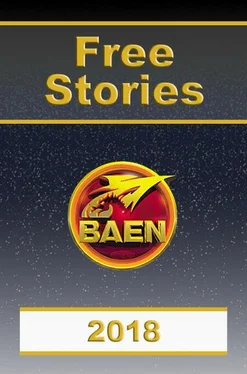

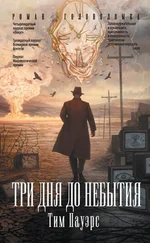
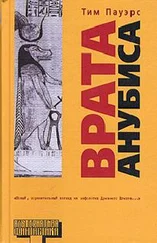

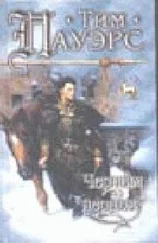
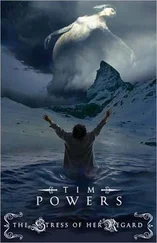

![Тим Пауэрс - Последние дни. Том 2 [litres]](/books/393813/tim-pauers-poslednie-dni-tom-2-litres-thumb.webp)
![Тим Пауэрс - Последние дни. Том 1 [litres]](/books/394090/tim-pauers-poslednie-dni-tom-1-litres-thumb.webp)
![Тим Пауэрс - Последний выдох [litres]](/books/402145/tim-pauers-poslednij-vydoh-litres-thumb.webp)